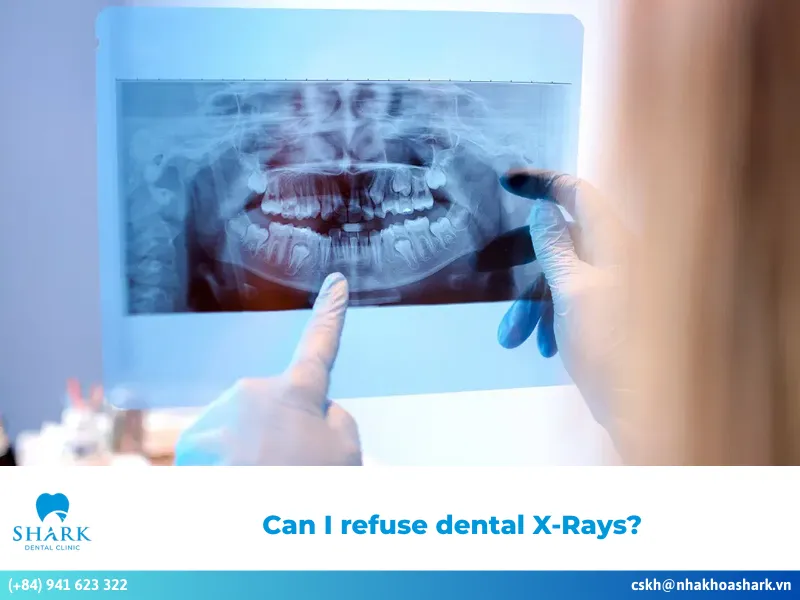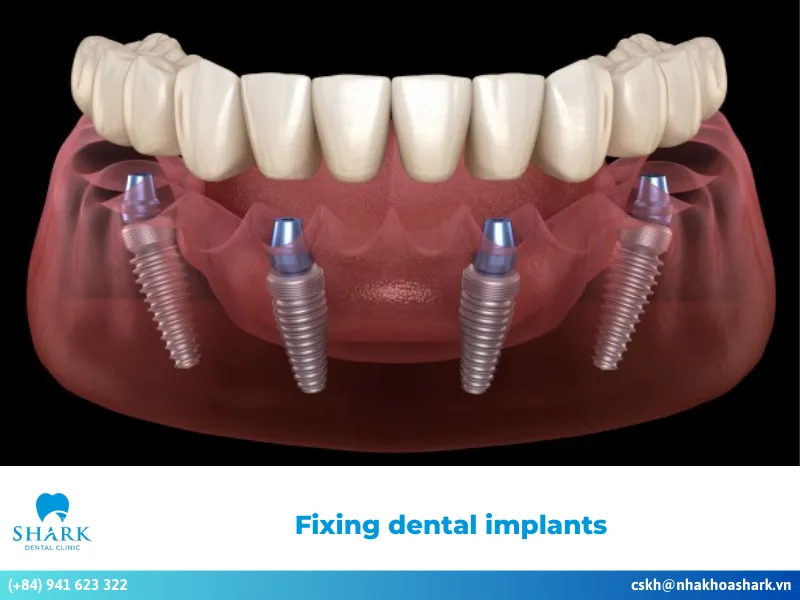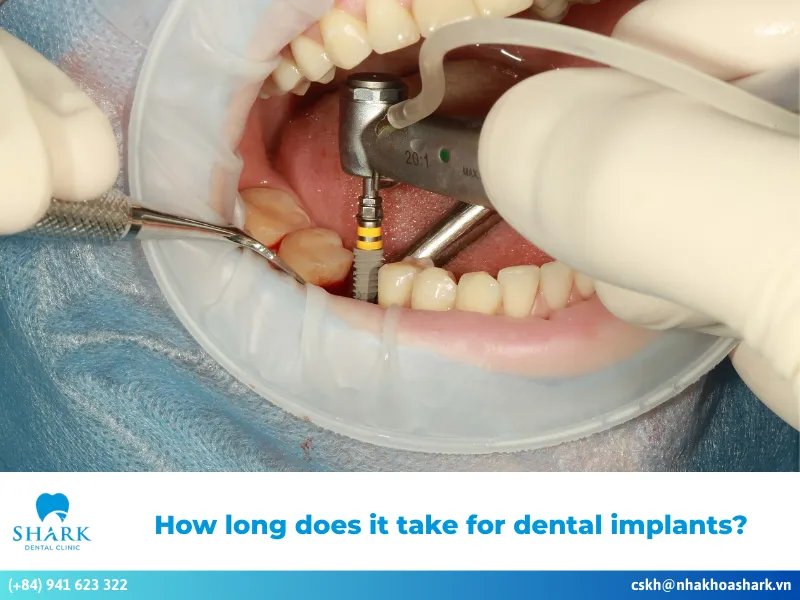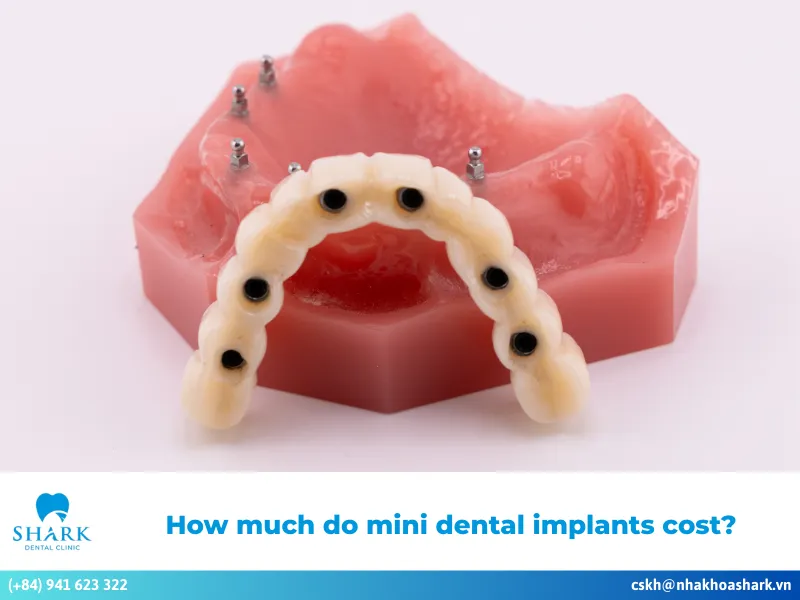When experiencing pain from pulpitis or a root canal infection, many people turn to antibiotics. However, it raises a couple of important questions: What is the best antibiotic for root canal infection, and can antibiotics alone completely resolve the problem? To find the most accurate answers, let’s explore with Shark Dental Clinic the details below.
When should antibiotics be used for a tooth pulp infection?
Antibiotics should only be used to treat a pulp infection when prescribed by a dentist. Generally, dentists may recommend antibiotics in the following situations:
- When the infection spreads: If bacteria from the infected pulp have already spread to the gums, jawbone, or caused swelling in the face.
- When there are signs of severe infection: Symptoms such as fever, fatigue, or swollen lymph nodes indicate that the infection has advanced and requires medical intervention.
It’s essential to understand that antibiotics can only help control the infection temporarily and cannot replace definitive treatments like root canal therapy. Therefore, if you suspect a pulp infection, you should promptly visit a dental clinic for examination and appropriate treatment.

What is the best antibiotic for root canal infection?
In reality, there is no single antibiotic that is considered the best for every case of pulp infection. Dentists commonly prescribe antibiotics such as Penicillin or Amoxicillin. However, the specific choice depends on several factors, including the severity of the infection, the patient’s overall health, and any history of allergies.
For your safety and to achieve the best outcome, consult your dentist directly. Only after a proper diagnosis can your dentist prescribe the most suitable antibiotic for your situation.
Amoxicillin
Amoxicillin is a broad-spectrum antibiotic that belongs to the beta-lactam group. It is highly effective in eliminating a wide range of bacteria and generally causes fewer side effects on the digestive system. Because of these advantages, Amoxicillin is often considered the first-line choice for treating pulp infections.
Dosage and usage: According to the American Dental Association (ADA), the recommended dosage of Amoxicillin is 500 mg orally, three times per day for 3 to 7 days.

Penicillin
Penicillin, also part of the beta-lactam group, is another widely used antibiotic for treating pulp infections. It effectively controls the bacterial strains responsible for dental infections. However, since some patients may be allergic to Penicillin, it is crucial to undergo a medical history check and receive proper consultation before starting this medication.
Dosage and usage: As recommended by the American Dental Association (ADA), Penicillin is typically prescribed at a dosage of 500 mg orally, four times per day for 3 to 7 days.
Cephalexin
Cephalexin is a commonly prescribed antibiotic for treating root canal infections. It works by inhibiting bacterial growth, which prevents the infection from spreading. Cephalexin is considered a safe option for patients who are allergic to other antibiotics, such as Penicillin or Amoxicillin.
Dosage and usage: According to the American Dental Association (ADA), Cephalexin is typically prescribed at 500 mg, taken orally four times a day for 3 to 7 days.
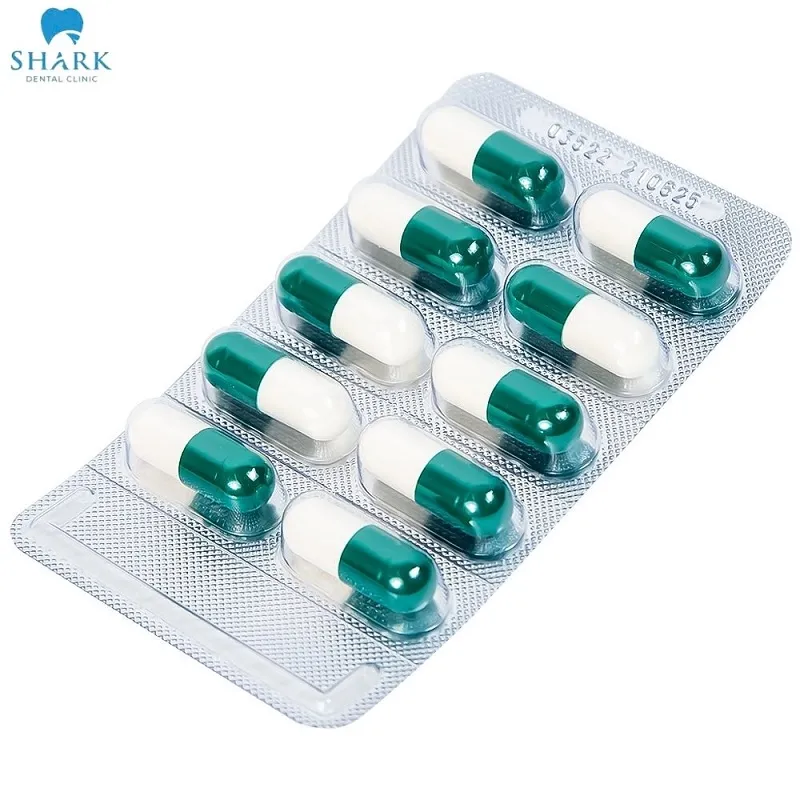
Clindamycin
Clindamycin is another antibiotic option for root canal infections, often prescribed for patients with allergies to Penicillin or other antibiotics. It is highly effective due to its strong antibacterial action and lower risk of resistance. Clindamycin is particularly effective against anaerobic bacteria, which are a primary cause of dental infections.
Dosage and usage: The American Dental Association (ADA) commonly prescribes Clindamycin at 300 mg, taken orally four times a day for 3 to 7 days.
Azithromycin
Azithromycin, like Clindamycin, is an effective alternative antibiotic for treating root canal infections, especially in patients who are unable to take Penicillin. This antibiotic works by inhibiting the growth and spread of bacteria, offering a broad spectrum of activity against multiple strains.
Dosage and usage: The American Dental Association (ADA) recommends an initial dose of 500 mg on the first day, followed by 250 mg once daily for the next four days.
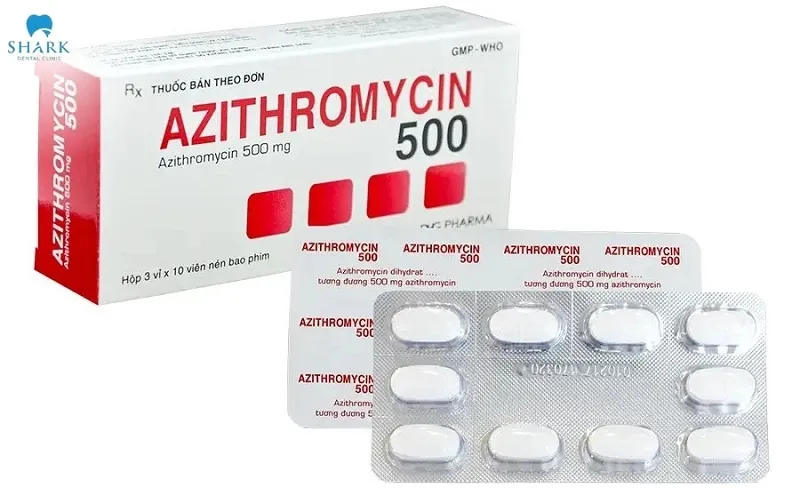
Will a tooth infection go away with antibiotics?
No, antibiotics can only temporarily control the infection and alleviate pain, but they cannot completely cure a root canal infection. Definitive treatment requires dental procedures such as fillings, root canal therapy, or, in severe cases, tooth extraction.
Most tooth infections arise from damage to the tooth or surrounding tissues. While antibiotics can kill harmful bacteria, they do not address the underlying cause. Therefore, combining antibiotics with appropriate dental procedures is essential for fully eliminating the infection and preventing its recurrence.
>>> See more: Root canal treatment costs in Ho Chi Minh City
Is there anything I can do to make treatment easier for me?
In addition to antibiotics, several supportive measures can help relieve pain and improve recovery at home:
- Apply a cold compress to the swollen area to reduce pain and inflammation.
- Maintain oral hygiene using a soft-bristled toothbrush, floss, or a water flosser to remove plaque between your teeth.
- Rinse your mouth with salt water to cleanse it and support healing.
- Take Paracetamol in appropriate doses to control pain and swelling.
- Eat a healthy diet rich in fresh fruits and vegetables, which provide essential vitamins and minerals.
- Ensure you get adequate rest and avoid intense physical activity for a few days.
- Chew on the side opposite the infected tooth to minimize pressure and discomfort.
- Visit your dentist regularly (1–2 times a year) for check-ups to allow for early detection and timely treatment of any oral health issues.

At Shark Dental Clinic, we are dedicated to providing safe, effective, and personalized solutions for each patient. If you are experiencing a root canal infection, the best course of action is to schedule a consultation so our specialists can determine what is the best antibiotic for root canal infection and the most appropriate treatment plan for you. This personalized approach will ensure optimal results and minimize risks such as allergic reactions or antibiotic resistance.
>>> See more: Root canal treatment in Vietnam





